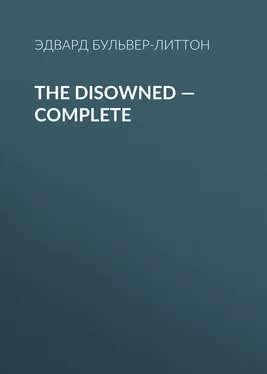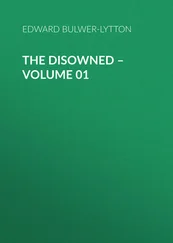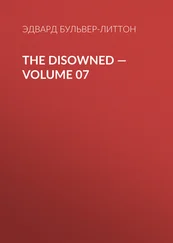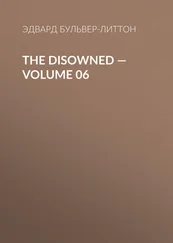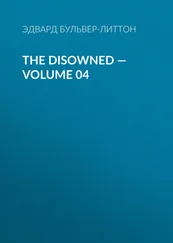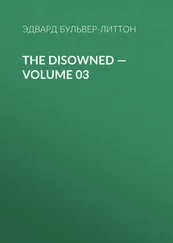Эдвард Бульвер-Литтон - The Disowned — Complete
Здесь есть возможность читать онлайн «Эдвард Бульвер-Литтон - The Disowned — Complete» — ознакомительный отрывок электронной книги совершенно бесплатно, а после прочтения отрывка купить полную версию. В некоторых случаях можно слушать аудио, скачать через торрент в формате fb2 и присутствует краткое содержание. Жанр: foreign_prose, literature_19, Европейская старинная литература, foreign_antique, на английском языке. Описание произведения, (предисловие) а так же отзывы посетителей доступны на портале библиотеки ЛибКат.
- Название:The Disowned — Complete
- Автор:
- Жанр:
- Год:неизвестен
- ISBN:нет данных
- Рейтинг книги:5 / 5. Голосов: 1
-
Избранное:Добавить в избранное
- Отзывы:
-
Ваша оценка:
- 100
- 1
- 2
- 3
- 4
- 5
The Disowned — Complete: краткое содержание, описание и аннотация
Предлагаем к чтению аннотацию, описание, краткое содержание или предисловие (зависит от того, что написал сам автор книги «The Disowned — Complete»). Если вы не нашли необходимую информацию о книге — напишите в комментариях, мы постараемся отыскать её.
The Disowned — Complete — читать онлайн ознакомительный отрывок
Ниже представлен текст книги, разбитый по страницам. Система сохранения места последней прочитанной страницы, позволяет с удобством читать онлайн бесплатно книгу «The Disowned — Complete», без необходимости каждый раз заново искать на чём Вы остановились. Поставьте закладку, и сможете в любой момент перейти на страницу, на которой закончили чтение.
Интервал:
Закладка:
As Clarence glanced from these relics to the figure of Mordaunt, who stood at a little distance leaning against the window, with arms folded on his breast and with eyes abstractedly wandering over the noble woods and extended park, which spread below, he could not but feel that if birth had indeed the power of setting its seal upon the form, it was never more conspicuous than in the broad front and lofty air of the last descendant of the race by whose memorials he was surrounded. Touched by the fallen fortunes of Mordaunt, and interested by the uncertainty which the chances of law threw over his future fate, Clarence could not resist exclaiming, with some warmth and abruptness,—
“And by what subterfuge or cavil does the present claimant of these estates hope to dislodge their rightful possessor?”
“Why,” answered Mordaunt, “it is a long story in detail, but briefly told in epitome. My father was a man whose habits greatly exceeded his fortune, and a few months after his death, Mr. Vavasour, a distant relation, produced a paper, by which it appeared that my father had, for a certain sum of ready money, disposed of his estates to this Mr. Vavasour, upon condition that they should not be claimed nor the treaty divulged till after his death; the reason for this proviso seems to have been the shame my father felt for his exchange, and his fear of the censures of that world to which he was always devoted.”
“But how unjust to you!” said Clarence.
“Not so much so as it seems,” said Mordaunt, deprecatingly; “for I was then but a sickly boy, and according to the physicians, and I sincerely believe according also to my poor father’s belief, almost certain of a premature death. In that case Vavasour would have been the nearest heir; and this expectancy, by the by, joined to the mortgages on the property, made the sum given ridiculously disproportioned to the value of the estate. I must confess that the news came upon me like a thunderbolt. I should have yielded up possession immediately, but was informed by my lawyers that my father had no legal right to dispose of the property; the discussion of that right forms the ground of the present lawsuit. But,” continued Mordaunt, proudly, yet mournfully, “I am prepared for the worst; if, indeed, I should call that the worst which can affect neither intellect nor health nor character nor conscience.”
Clarence was silent, and Mordaunt after a brief pause once more resumed his guidance. Their tour ended in a large library filled with books, and this Mordaunt informed his guest was his chosen sitting-room.
An old carved table was covered with works which for the most part possessed for the young mind of Clarence, more accustomed to imagine than reflect, but a very feeble attraction; on looking over them, he, however, found, half hid by a huge folio of Hobbes, and another of Locke, a volume of Milton’s poems; this paved the way to a conversation in which both had an equal interest, for both were enthusiastic in the character and genius of that wonderful man, for whom “the divine and solemn countenance of Freedom” was dearer than the light of day, and whose solitary spell, accomplishing what the whole family of earth once vainly began upon the plain of Shinar, has built of materials more imperishable than “slime and brick” “a city and a tower whose summit has reached to heaven.”
It was with mutual satisfaction that Mordaunt and his guest continued their commune till the hour of dinner was announced to them by a bell, which, formerly intended as an alarum, now served the peaceful purpose of a more agreeable summons.
The same servant who had admitted Clarence ushered them through the great hall into the dining-room, and was their solitary attendant during their repast.
The temper of Mordaunt was essentially grave and earnest, and his conversation almost invariably took the tone of his mind; this made their conference turn upon less minute and commonplace topics than one between such new acquaintances, especially of different ages, usually does.
“You will positively go to London to-morrow, then?” said Mordaunt, as the servant, removing the appurtenances of dinner, left them alone.
“Positively,” answered Clarence. “I go there to carve my own fortunes, and, to say truth, I am impatient to begin.” Mordaunt looked earnestly at the frank face of the speaker, and wondered that one so young, so well-educated, and, from his air and manner, evidently of gentle blood, should appear so utterly thrown upon his own resources.
“I wish you success,” said he, after a pause; “and it is a noble part of the organization of this world that, by increasing those riches which are beyond fortune, we do in general take the surest method of obtaining those which are in its reach.”
Clarence looked inquiringly at Mordaunt, who, perceiving it, continued, “I see that I should explain myself further. I will do so by using the thoughts of a mind not the least beautiful and accomplished which this country has produced. ‘Of all which belongs to us,’ said Bolingbroke, ‘the least valuable parts can alone fall under the will of others. Whatever is best is safest; lies out of the reach of human power; can neither be given nor taken away. Such is this great and beautiful work of Nature, the world. Such is the mind of man, which contemplates and admires the world whereof it makes the noblest part. These are inseparably ours, and as long as we remain in one we shall enjoy the other.’”
“Beautiful, indeed!” exclaimed Clarence, with the enthusiasm of a young and pure heart, to which every loftier sentiment is always beautiful.
“And true as beautiful!” said Mordaunt. “Nor is this all, for the mind can even dispense with that world ‘of which it forms a part’ if we can create within it a world still more inaccessible to chance. But (and I now return to and explain my former observation) the means by which we can effect this peculiar world can be rendered equally subservient to our advancement and prosperity in that which we share in common with our race; for the riches which by the aid of wisdom we heap up in the storehouses of the mind are, though not the only, the most customary coin by which external prosperity is bought. So that the philosophy which can alone give independence to ourselves becomes; under the name of honesty, the best policy in commerce with our kind.”
In conversation of this nature, which the sincerity and lofty enthusiasm of Mordaunt rendered interesting to Clarence, despite the distaste to the serious so ordinary to youth, the hours passed on, till the increasing evening warned Linden to depart.
“Adieu!” said he to Mordaunt. “I know not when we shall meet again, but if we ever do, I will make it my boast, whether in prosperity or misfortune, not to have forgotten the pleasure I have this day enjoyed!”
Returning his guest’s farewell with a warmth unusual to his manner, Mordaunt followed him to the door and saw him depart.
Fate ordained that they should pursue in very different paths their several destinies; nor did it afford them an opportunity of meeting again, till years and events had severely tried the virtue of one and materially altered the prospects of the other.
The next morning Clarence Linden was on his road to London.
CHAPTER VII
“Upon my word,” cries Jones, “thou art a very odd fellow, and I like thy humour extremely.”—FIELDING.
The rumbling and jolting vehicle which conveyed Clarence to the metropolis stopped at the door of a tavern in Holborn. Linden was ushered into a close coffee-room and presented with a bill of fare. While he was deliberating between the respective merits of mutton chops and beefsteaks, a man with a brown coat, brown breeches, and a brown wig, walked into the room; he cast a curious glance at Clarence and then turned to the waiter.
Читать дальшеИнтервал:
Закладка:
Похожие книги на «The Disowned — Complete»
Представляем Вашему вниманию похожие книги на «The Disowned — Complete» списком для выбора. Мы отобрали схожую по названию и смыслу литературу в надежде предоставить читателям больше вариантов отыскать новые, интересные, ещё непрочитанные произведения.
Обсуждение, отзывы о книге «The Disowned — Complete» и просто собственные мнения читателей. Оставьте ваши комментарии, напишите, что Вы думаете о произведении, его смысле или главных героях. Укажите что конкретно понравилось, а что нет, и почему Вы так считаете.
